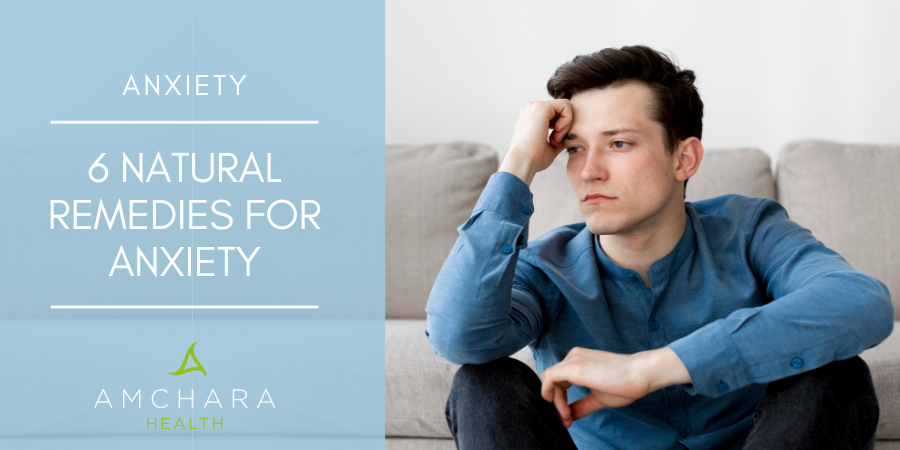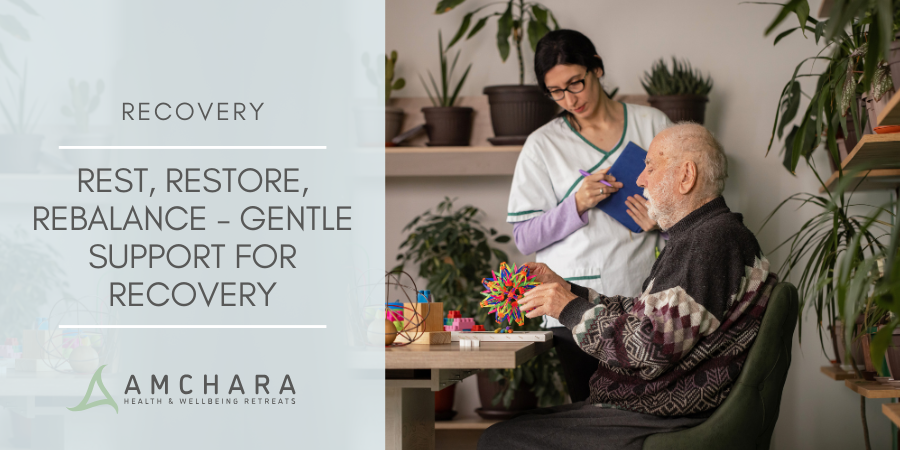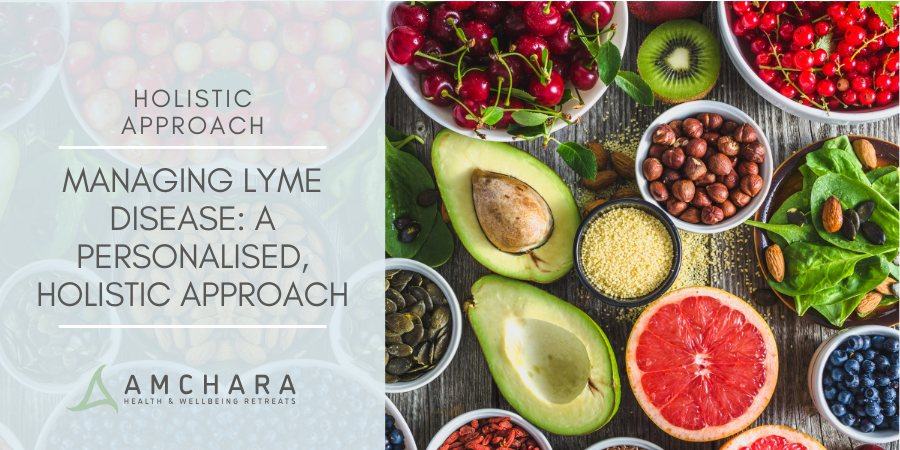Topics Covered in this article:
In our busy, modern world, anxiety often arises as a common and typical part of life. In fact, anxiety is one of the most common mental health issues statistically, with around 12% of the UK’s population said to be experiencing it at any given time.
Anxiety is by no means always a negative thing. On the contrary, it has been shown to provide motivation to stay prepared and organised, and to make us aware and primed to calculate any kinds of risks and danger.
However, chronic anxiety on a daily and recurring basis can have a significant impact on our lives, and overall health. For this reason, it is important to take steps to reduce anxiety as far as possible. In this article, we outline a selection of research-driven natural methods to combat your anxiety on a daily basis.
We always take an evidence-based approach, orientated towards holistic and personalised Health, and aim to provide you with actionable knowledge and tips to help you on your journey to optimal health.
1. Eat a balanced diet
Low blood sugar levels, chemicals found in heavily processed foods, or dehydration are just a few of the dietary conditions that have been shown to have an adverse impact on people’s mood and mental health, including resulting in anxiety. Steps can be taken to combat these, through avoiding processed foods and instead sticking to natural, plant-based and whole foods as far as possible, as well as ensuring you are drinking enough water on a daily basis – the recommended amount is around 2 litres for women and 2.5 for men.
There are also a range of specific nutrients that can be consumed either through specific foods, or as dietary supplements, that have been shown to help reduce anxiety. For example, diets low in magnesium or zinc have been found to cause increased levels of anxiety, so eating foods naturally rich in these nutrients, such as leafy greens or whole grains for magnesium, or beef, cashews, and egg yolks for zinc, may help you to feel calmer and more relaxed.
Foods containing omega-3 fatty acids, such as oily fish including salmon, have also been linked to lower anxiety levels. A study completed in 2011 on medical students was one of the first to confidently demonstrate this link.
2. Meditation and mindfulness
Meditation aims to help you achieve a sense of grounding, and awareness of the present moment, while helping to reduce fixation on the past or future and allowing for a more mindful tolerance of all thoughts and feelings, in a non-judgemental way.
A wide range of meditation styles, including yoga or breathing exercises, may be beneficial. Research from John Hopkins has suggested that just 30 minutes of daily meditation may alleviate a number of symptoms relating to anxiety and act as a natural antidepressant.
3. Breath work
Breath work in particular can induce deep relaxation, improve your mental clarity, release trauma, strengthen your immune system, aid blood pressure balance and boost self-awareness and contentment.
Holotropic breath work is the most intense form; this involves rounds of conscious connected breathing (no pause in between breaths, basically ‘controlled hyperventilation’) to bypass the mind and access an altered state of consciousness. This is the style that many people have reported releases deep trauma, psychedelic style trips/spiritual experiences. This type of breathwork needs to be carried out under the supervision of a trained facilitator.
A few other forms of breathwork that are for more everyday use are box breathing, alternate nostril breathing, deep abdominal breathing, 4-7-8 breath, and breath of fire.
The majority of us aren’t breathing correctly in everyday life and are in a constant state of fight or flight which increases stress levels. Breathwork can help activate the parasympathetic nervous system and aid your body’s ability to rest and digest.
4. Exercise
There is a wealth of evidence surrounding the ability of exercise to allow you to burn off anxious energy and increase your overall mood through the release of endorphins, your body’s ‘feel-good’ chemicals, which can put you in a positive state of mind.
For example, the findings of a recent study suggest that those who engage in regular exercise, especially cardiovascular activities such as running, may lower their overall risk of developing anxiety by almost 60%.
5. Spend time in nature
Research shows that people who are more connected with, and spend greater amounts of time in, nature are usually happier in life overall, and are therefore likely to report significantly lower levels of anxiety as a result. Nature can generate a number of positive emotions such as calmness, joy and creativity, and can also facilitate concentration.
Unsurprisingly, people with strong nature connectedness are also likelier to demonstrate pro-environmental behaviours such as recycling or buying seasonal food, which can in turn lead to an increased sense of pride or accomplishment at the knowledge of helping to safeguard the natural world, which has been demonstrated by much research to reduce anxiety levels and improve overall mental health.
6. Aromatherapy
Similarly to a connection with the natural world, smelling soothing plant oils has also been shown to help ease stress and anxiety, as well as to combat a common symptom of anxiety, disrupted and shortened sleep.
A 2012 study tested the effects of aromatherapy with lavender on insomnia in women aged 45–55. Results suggest that the aromatherapy can both reduce heart rate and help to ease sleep issues, both contributing to a reduction in anxiety.
Some essential oils believed to specifically relieve anxiety, other than lavender, include bergamot, grapefruit, ylang ylang, and clary sage. However, certain scents can work better for some people than others, so it is worth considering experimenting with various options.
Takeaway
Untreated anxiety in a person’s life can have a detrimental effect, and can impact all aspects of health and wellbeing. However, just by taking simple, natural steps like the ones detailed above, it is possible to significantly reduce your anxiety on a daily basis.
It is often recommended to try a wide variety and combination of remedies and therapies before finding one that works for you specifically. If you have any significant concerns about your anxiety or steps you can take to reduce it, a health practitioner can always help to provide suggestions, and work out which options are best for you individually.
If you want to boost your health and immune system even more over the coming months, why not come to Amchara for a relaxing detox health retreat in tranquil surroundings? With expert advice on hand from our experienced Personalised Health practitioners, you can benefit from personalised health advice, tailored to your needs and goals, to help you maximise your health gains.
Juicing and fasting may be recommended, according to your individual situation and unique health needs. You will be immersed in a supportive and nurturing environment that enables you to switch off, relax and kickstart your health journey, including physical activities and empowering, educational talks.
Or if it’s hard to find the time to get away, why not try Amchara Juicery – cold-pressed, nutritious juices delivered to your door to help you boost your health, naturally. Created by Amchara’s expert in-house health team, you can enjoy a range of fresh, organic juice cleanses (and super soups) at home.
Related articles:




